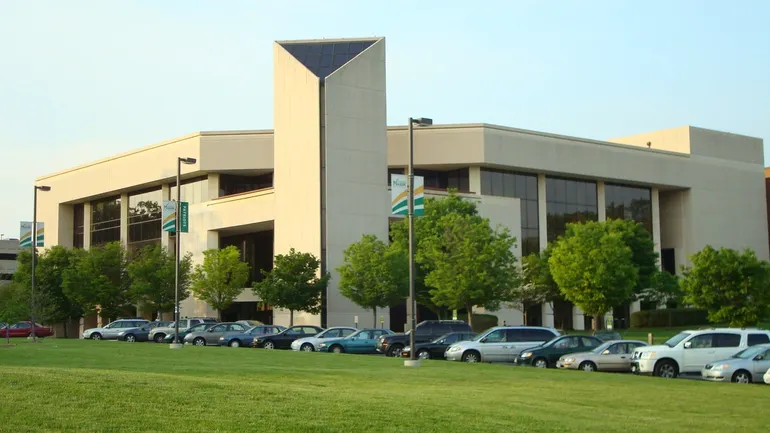Human resources professionals in healthcare settings face unique challenges in managing licensed professionals.
Nurses, physicians and others are subject to the bylaws and governing rules established not only by their employer but also by their governing practice act, regulated by their state licensing board.
Robyn W. Madden
Permission granted by Robyn W. Madden
Understanding the intersection of employment law and administrative law is crucial for HR professionals to support their organizations and protect patient safety effectively.
Understanding administrative law and boards
Administrative law governs the activities of government agencies, including professional licensing boards, which are responsible for ensuring regulatory compliance and protecting the public.
Those boards operate according to internal procedures and timelines and have the power to impose license-limiting and practice-restrictive sanctions. Beyond this, certain misconduct may place an affirmative duty upon the employer to initiate a report to the National Practitioner Data Bank or the governing state licensing board.
Each licensing board is generally empowered to issue or deny, renew, restrict, suspend or revoke a license through the administrative process, which typically begins with an investigation that, depending on state law, is likely confidential.
When a licensed employee is under investigation or faces disciplinary action by a board, the matter proceeds through an administrative process that is separate from, but can heavily impact, the employee’s ability to practice. Licensing boards generally have the power to:
- Establish practice standards and codes of conduct to ensure consistency and professionalism.
- Investigate complaints from patients, colleagues and employers.
- Impose and enforce disciplinary action, up to and including license probation, suspension or revocation.
- Maintain public records of disciplinary actions, which are generally accessible through online databases.
Dealing with an administrative investigation
If an employee is reported to a licensing board and under investigation — whether due to an allegation that the employee suffers from an impairing substance use or mental health-related condition, an allegation of substandard patient care, a boundary violation or other professional misconduct — HR leaders must approach the situation with caution and compliance.
When faced with a licensing-related matter, consider the following:
- Maintain confidentiality. Administrative investigations are typically confidential, and any information shared with HR may be subject to confidentiality restrictions. Importantly, an investigation does not mean that there has been a finding that the employee has violated the governing practice act, jeopardized patient care or committed any wrongdoing.
- Follow your internal policies. If the allegation is work-related, HR and management should follow internal procedures.
- Cooperate, but seek legal advice. HR may be contacted by board investigators seeking employment records, patient files or witness interviews. Cooperation is necessary, but it is also essential to consult with legal counsel before releasing any documents or making any statements.
- Verify reporting obligations. In some cases, employers are legally required to report misconduct to a licensing board or the National Practitioner Data Bank. It is essential to consult with legal counsel to understand your obligations and any applicable requirements.
- Timing is controlled by the administrative process and subject to due process. Licensees are generally entitled to due process, which can last several months or even years.
- When in doubt, and not subject to internal procedure, act with caution. HR should not assume guilt or take premature disciplinary action solely based on a pending board investigation.
Best practices for HR professionals
HR may need to consider a range of issues when working with licensed individuals, including disciplinary procedures, training and relevant employment laws.
Employment actions and licensing impacts
It’s important to distinguish between employment decisions (which are governed by labor laws and company policies) and licensing decisions (which are governed by administrative law). However, the two often overlap.
For example:
- If a license is suspended or revoked, the employee is prohibited from practicing.
- If a license is restricted (e.g., supervision required), HR must evaluate whether the organization can accommodate the restriction.
- If disciplinary action is pending, employers are not required to wait for the outcome; however, they must make decisions based on risk, fairness and legal defensibility.
Fitness for duty and return to work
In cases involving substance use, mental health or physical impairments, boards may require licensees to undergo evaluation, complete treatment or participate in monitoring with the state professional health program. HR may be called upon to:
- Assist with the coordination of leave required by the Family and Medical Leave Act or the Americans with Disabilities Act (when applicable).
- Coordinate with occupational health or employee assistance programs.
- Ensure compliance with any board-imposed work restrictions or monitoring agreements upon return to work.
Due process and fair employment practices
HR professionals should be aware of employees’ rights under federal and state employment laws, including the ADA, which provides reasonable accommodations to qualified individuals, and the FMLA, which applies to severe health conditions.
Administrative board action should not be used as a pretext for unlawful discrimination or retaliation. For example, if a nurse enrolls with the state professional monitoring program associated with a substance use diagnosis, the employer must be cautious not to take adverse action unless justified by legitimate, non-discriminatory reasons.
Tailoring internal processes
Proper documentation is essential. HR professionals should ensure there are:
- Clear policies on licensure requirements and reporting obligations.
- Licensure status is verified upon hire, under renewal requirements and periodically thereafter.
- Internal processes for responding to complaints, disciplinary actions or board inquiries.
Communicating with stakeholders
Sometimes, board actions become public, particularly when a license is suspended or revoked. HR may need to coordinate with leadership, risk management and public relations teams to manage internal and external communications.
Takeaways for HR professionals
State licensing board actions present a unique dimension to HR’s responsibilities when managing licensed professionals. Employers can be in a good position to navigate those complexities, however, with a few proactive steps:
- Verify licenses regularly. Utilize tools such as the Nursys database or state board licensee lookup portals.
- Establish protocols for handling restricted or suspended licenses.
- Engage legal counsel early in the process, ideally when contacted by an investigator.
- Train supervisors and other staff to recognize the signs of impairment or misconduct and report concerns in a timely and appropriate manner.
- Maintain employee support systems, such as employee assistance programs, particularly in high-stress clinical environments.
By understanding how licensing systems work, HR professionals can navigate the complex intersection of employment law and professional regulation with confidence and clarity. The ultimate goal is to protect the public while respecting the rights of both the organization and its licensed employees.






Leave a Reply